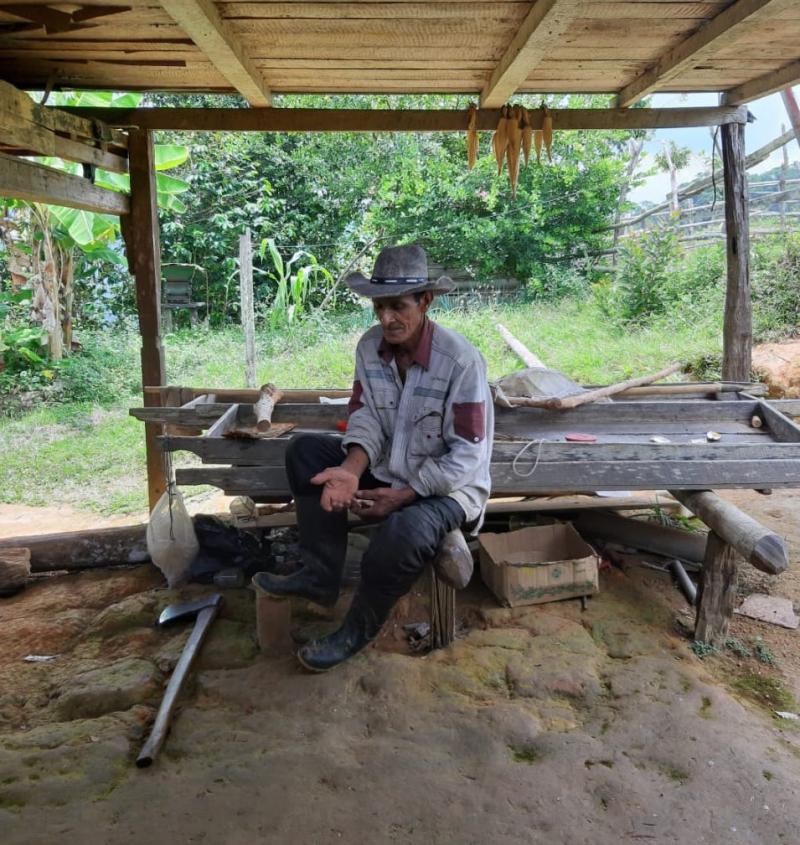

New investments in the Colombia Trust Fund support demining action in northwest Colombia and expand community health and social systems.
Jose Luis Gil, 68, and his wife, Resfa, are the only residents of Las Flores—a sleepy village in the San Rafael, Antioquia. The municipality, located in the northwest of Colombia, has long been contested, serving as a battleground between government and Revolutionary Armed Forces (FARC).
Ongoing insecurity in the area meant Gil’s land was littered with antipersonnel mines that, one day, led to a life-threatening accident. While minding his business, tending to his fields, Gil stepped on a landmine. The blast tore through his legs and forced surgeons at the nearest hospital to amputate his left one below the knee.
{"preview_thumbnail":"/sites/default/files/styles/video_embed_wysiwyg_preview/public/video_thumbnails/7nqoQ4dnTYk.jpg?itok=4K_v2FNk","video_url":"https://youtu.be/7nqoQ4dnTYk","settings":{"responsive":1,"width":"854","height":"480","autoplay":1},"settings_summary":["Embedded Video (Responsive, autoplaying)."]}
In the years that followed Gil refused to engage with humanitarian organizations that approached him with plans for demining in his village. The accident caused Gil and his wife so much emotional and economic distress they became distrustful of any type of authority.
If at first you don’t succeed
Despite Gil’s reluctance authorities were intent on demining the entire municipality for the sake of Jose and Resfa along with thousands other residents. Members of the Comprehensive Action Against Antipersonnel Mines (AICMA) project—a pooled-fund initiative overseen by the UN Multi-Partner Trust Fund (MPTF) Office—were some of the first to visit Gil and offer to hear him out. They wanted a better take on his situation. The team found, in addition to being psychologically vulnerable, he was suffering physiologically from a faulty prosthetic limb that caused Gil harm, but one the landmine survivor had to wear in order to keep working.
New trust fund investments support demining action in northwest Colombia, expanding community health and social systems.
After AICMA members made some headway during their visit the Mayor's Office in San Rafael got involved. The community care did not stop there, however, as staff from the local hospital, Ministry of Health in Antioquia, and a local insurance company, Savia Salud ESP, contacted AICMA to find out how they could be of service. From that day forward the Gils found they were not as alone as previously thought, which prompted them to look into the assistance on offer.
The way back, covering more distance together
The Gils were invited to take part in the local meetings on the demining project and compensation for landmine survivors. Bit by bit, the stakeholders involved earned the trust of the only residents of Las Flores. They did this by propping open the lines of communication and improving coordination between administrative, social, and health care providers. Gil, sensing the ways this approach could benefit him and his wife, became more proactive and signed on for assistance from a local NGO.
That choice led to the replacement of his prosthesis alongside the enactment of a new set of health policies and regulations that improved health care access for landmine survivors. Without the persistence and openness of AICMA staff it’s unlikely such changes would have been possible. The trust they built between people like Gil, community authorities, and service providers laid the groundwork for new relationships to grow and social models to evolve.
More importantly, humanitarian demining organizations have succeeding in Gil’s property of mines, as well as hundreds of acres of land in San Rafael municipality.
In early 2020 the Sustaining Peace in Colombia MPTF received an injection of capital for the second phase of operations in parts of Colombia hardest hit by violent conflict. The $24.5 million US dollars in international financing (in addition to $124 million in the last decade) will fill funding gaps in places where resources are scarce.
Financing that enable local organizations and leaders across the country to continue scaling up processes vital to the consolidation peace in Colombia.